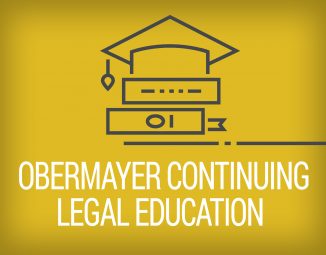State Representative Enters Consent Agreement for $14K in Ethics Violations, But No Criminal Referral
This article was originally published on JD Supra.
Last week, the Pennsylvania State Ethics Commission (“Commission”) entered into a public consent agreement to fine a sitting state representative $14,000 for violating state ethics law. The Commission’s final adjudication, however, did not refer State Representative David Zimmerman’s case for criminal prosecution. The case shows the Commission’s willingness to enter into consent agreements instead of making criminal referrals.
The Public Official and Employee Ethics Act, 65 Pa. C.S. §§ 1101 et seq. (“Ethics Act”) applies to all public officials, elected or appointed, and public employees in Pennsylvania. The Act prohibits public officials and employees from conflicts of interest. Under the Ethics Act, a public official or employee cannot use her authority—or confidential information gained by virtue of her public office or employment—for the private pecuniary benefit of the official or employee, her family, or businesses associated with the official or employee or her family. Furthermore, if a public official or employee who votes on matter in the course of their duties is presented with a conflict of interest, the official or employee must abstain from voting and disclose the conflict.
To further promote public trust and confidence, the Ethics Act also requires public officials, candidates and nominees for public office, and public employees to file Statements of Financial Interest (“SFIs”). The Ethics Act requires public officials, candidates, nominees, and employees, among other requirements, to disclose the name and address of sources of income totaling $1,300 or more; the name and address of any creditor owed $6,500 or more and the applicable interest rate; any financial interest in any legal entity engaged in business or profit; and any financial interest in a business transferred to a family member. If a nominee or candidate does not file her SFI, she cannot take an oath of office; if a public official or employee does not file her SFI, she cannot continue her duties or receive compensation.
The Pennsylvania State Ethics Commission is an independent state agency charged with enforcing the Ethics Act, including investigating alleged violations of the Act. Among other powers and duties, the Commission may order recommendations to law enforcement officials, including for criminal prosecution or dismissal of charges. Violation of the conflict of interest provision is a felony subject to a $10,000 fine or five years in prison. Violation of SFI rules is a misdemeanor subject to a $1,000 fine or one year in prison. Financial gain exposes a violator to treble damages.
On December 3, 2018, the Commission issued a final adjudication for alleged violations by Representative Zimmerman. Before Zimmerman was elected state representative, he served as a member of the Board of Supervisors of East Earl Township—a public office—and township roadmaster—public employment. While he served as supervisor, Zimmerman acquired an interest in a land development project. He later transferred part of his interest in the project to his brother, and the rest of his interest to others. Thereafter, he used his position as Chair of the Board of Supervisors to advance the project when it stalled. He failed to disclose his past interest and his brother’s current interest to the other township supervisors. He also failed to disclose the transfer of his interest to his brother and other pending payments for the sale of his interest in his SFIs.
The consent agreement stipulated to four violations of the Ethics Act by Representative Zimmerman, but cleared him of two others. The consent agreement directed Zimmerman, within thirty days, to pay a $12,000 fine to the Commonwealth of Pennsylvania and $2,000 to the Commission to represent a portion of costs incurred by the investigation. The fine represents a fraction of the amount of Zimmerman’s transactions selling his interest in the project to his brother and waiting payment for the sale of other interests.
A public official or employee under investigation should cooperate with the Ethics Commission. The Commission may be willing to enter into a consent agreement instead of criminal prosecution. The Commission has not shown willingness, however, to enter into confidential consent agreements. In addition to extensive investigations and legal fees, the surrounding publicity can be even more damaging to a public official and her reputation. Public officials and employees in Pennsylvania should be aware of the rules for conflicts of interest and reporting requirements.



